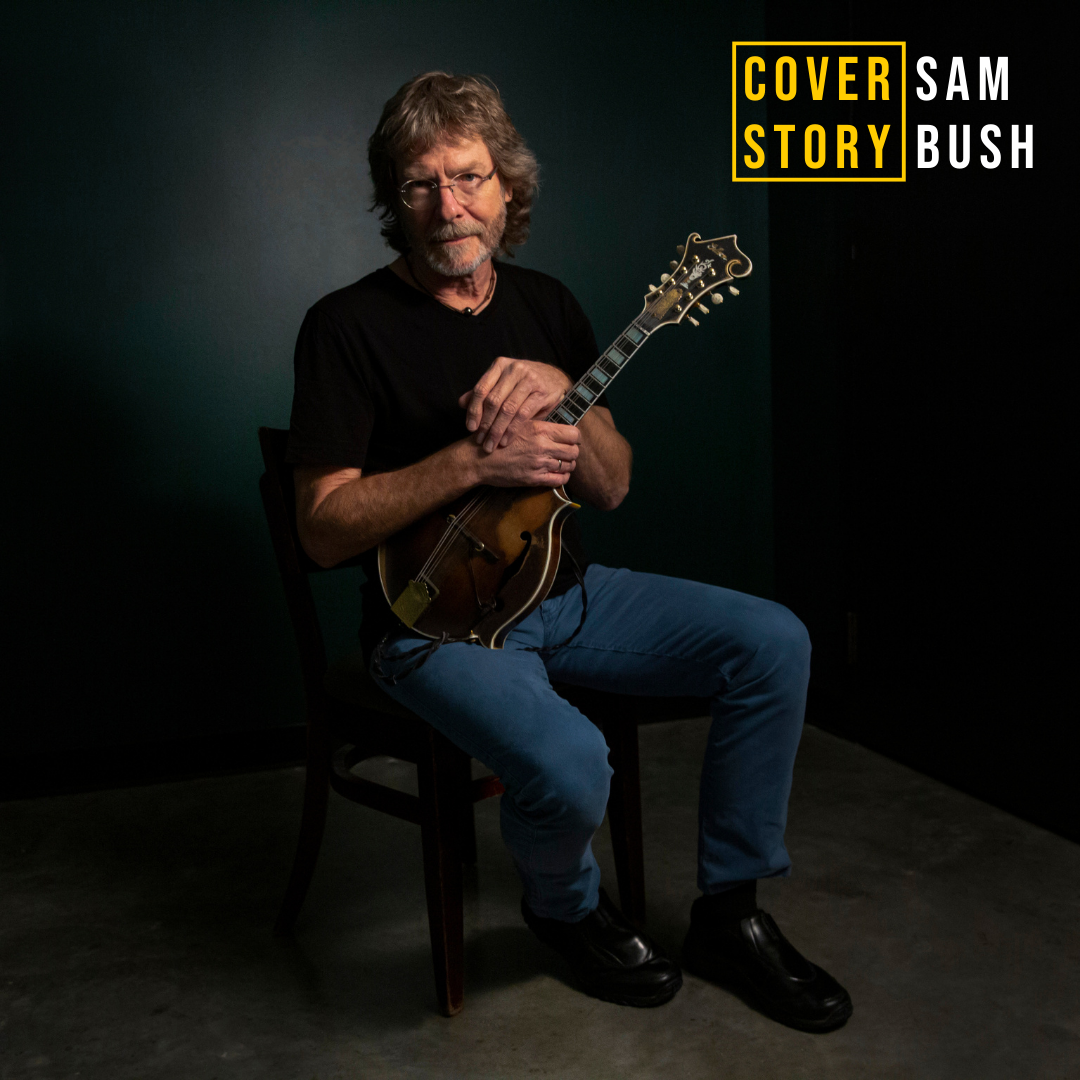On his 2022 album Black Banjo, Tray Wellington thwarted stereotypes and pushed the boundaries of what bluegrass music can be. On his new EP, Detour To The Moon, he picks up right where he left off, weaving in jazz, hip-hop, country, and more into his trailblazing banjo bangers.
The meshing of influences on the seven-song project serves as a segue between full-length records; the EP is the first of a planned conceptual series showcasing the picker’s sonic and personal evolution.
“I want to keep pushing myself and growing until I’m at my max potential, and I don’t feel like I’m anywhere close to reaching that yet,” Wellington tells BGS of the project’s concept. “So if we’re talking in terms of the universe, I want to get way past the moon, because we’ve already been there and because my influences are constantly evolving and I want to be able to reflect on all of it.”
Although he’s most proficient on banjo now, Wellington’s musical development began years prior on the guitar – until he stumbled upon Doc Watson’s music while browsing his grandfather’s record collection. By middle school, the Western North Carolina native had joined a mountain music club that traveled to local communities playing traditional bluegrass music. Eventually one of his teachers, Josh Church, introduced him to the banjo and he never looked back.
“I’d never heard him play banjo to that point, but he pulled it out that day and started playing ‘Salt Creek,’” Wellington recalls. “I was instantly hooked by its sound and fell in love. From there he taught me a song or two, leading me to beg my mom for a banjo over the summer before starting ninth grade.”
Since taking to the banjo Wellington has grown to be one of it’s most promising young pickers, most notably winning the International Bluegrass Music Association’s 2019 Momentum Award for Instrumentalist of the Year, graduating from East Tennessee State University’s Bluegrass, Old-Time and Roots Music Studies program, and helping to form New Dangerfield — a Black roots supergroup also comprised of vocalist/multi-instrumentalist Kaia Kater, bassist Nelson Williams, and fiddler/vocalist Jake Blount.
That promise shines bright throughout Detour To The Moon, which sees an equal mix of him creating his own instrumental soundscapes as well as taking other’s songs, like Duke Ellington’s “Caravan,” “John Hiatt’s “Lift Up Every Stone,” and Kid Cudi’s “Pursuit Of Happiness,” and making them entirely his own.
In particular, Wellington says that Cudi’s certified diamond hit, first released in 2009, was one that he had to record upon first hearing it in 2023, due to its message of drug abuse and escapism that he resonated with deeply.
“That, and witnessing the profoundly positive impact it had on others of lifting them out of the dark places they were once in, is what made me want to record it,” Wellington explains. “If a tune has that much power, it deserves to be re-recorded and spread to as many new audiences as possible.”
In addition to pushing boundaries with his music, Wellington also pushed them with his own creative abilities on the artwork for Detour To The Moon, which he made himself. The first-time occurrence is one that he was thrust into after a graphic designer he had commissioned back out of the project as a deadline for their work was fast approaching. Rather than hire someone new to complete the work or delay it (and risk pushing back the entire project as a whole), he began completing it on his own. Featuring Wellington standing stoically with his banjo on a cratered moon surface with a looming purple glow, the artwork is a display not only of his creativity, but the improvisation and ingenuity that also make him a top notch musician.
“It took me 30 hours to create,” Wellington says with a chuckle of making the artwork. “I had to imagine the concept and find reference pictures before sketching ideas and putting it all into Photoshop. It took a long time, but I’m proud of how it turned out and now I have this new skill I can continue to hone and potentially help other artists with as well.”
Aside from Wellington’s ingenuity coming out in the EP’s cover art and in its choice of songs, it’s also displayed in the players who joined him on the project. For the first time in his three studio albums Detour To The Moon includes drums courtesy of the Steep Canyon Rangers’ Michael Ashworth. It also features fellow Asheville mainstay Drew Matulich (The Grass Is Dead) on guitar. Pedal steel guitarist DaShawn Hickman, vocalist Wendy Hickman, and Kater were other contributors.
Those pivots came after Wellington went into the recording process, planning for the players joining him to be exclusively from his traveling band – bassist Katelynn Bohn, mandolinist/fiddler Josiah Nelson, and Nick Weitzenfeld. While it does include each of them on all or a portion of the project, it also blossomed into something bigger that celebrates not only Wellington’s sonic evolution, but the many ways that Black music of old still shares with that of the present.
Connecting those dots and pushing for more diversity within bluegrass and roots music have long been part of Wellington’s creative work. While he’s done more than his part to advance those efforts, he says it’s going to take much more to see representation where it matters most – the audience.
“I’ve seen a lot more Black and other people I didn’t usually see before picking up a banjo, fiddle, or mandolin and playing bluegrass music in the last five years, but in the grand scheme of things it’s still a very small number of us,” asserts Wellington. “It’s on the venues, labels, artists, fans – all of us – to get involved and push for change because at the end of the day nobody wants to go out to shows where they know they won’t feel comfortable at.”
Photo Credit: Heidi Holloway



